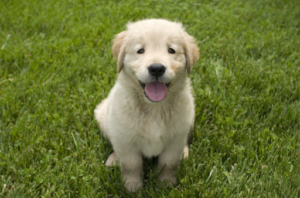It’s great to bring a new furry buddy home, and the early days are frequently spent cuddling and giggling while your puppy learns about the outside world. The next stage is to choose the appropriate time and communicate with our dog trainer to begin training your dog as you and your puppy get used to daily life. Many new and inexperienced owners are unaware of how advantageous it may be to begin teaching their puppy as soon as possible.

In general, pups can begin socialization training lessons as early as 7-8 weeks of age, according to the American Veterinary Society of Animal Behavior (AVSAB). Puppies should get their initial deworming and at least one round of vaccinations at least 7 days before the first lesson. Throughout the whole class, all vaccination records should be maintained for them.
The theory behind this is that a puppy’s lack of socialization during its first two to three months of life can cause behavioral problems such as phobias, aggressiveness, avoidance, and anxieties that last for the rest of the dog’s life. Thus, it is crucial to send your puppy to the professional dog training center in Malaysia to avoid behavioral problems stated above.
Socialization and obedience training: 7 to 8 weeks old
Puppy socialization skills and basic obedience instructions like “sit” and “stay” may be learned even when they have short attention spans. Especially on how to potty train your dog at the right place. Most pups should be trained between the ages of 7 and 8 weeks, and the most successful training involves both mild punishments and positive reinforcement. At this age, you may start introducing your puppy to various animals and new people so they can explore and learn new things.
Classes in Formal Training: 7 to 12 Weeks Old
Some pet owners, particularly those who are initially teaching a puppy, may opt to sign up for dog training lessons. These lessons offer the advantage of a dog trainer who can show suitable methods for instructing both fundamental and sophisticated instructions. A trainer for dog may also aid in identifying any issues with behavior or training and determine whether your puppy need more formal dog training programs, such as one-on-one training or immersion training. Additionally, group dog training courses are a terrific way to introduce your puppy to humans and other animals in a safe setting.
In the past, some puppy trainers advised against enrolling a puppy in lessons until they were 4 to 6 months old or had had all of their vaccinations. Instead of teaching a puppy positive habits from the beginning, that skips a crucial period of socialization during which the puppy may develop tendencies that you will need to fix later. Consult your veterinarian to ensure that your puppy is fit enough to start training. Your puppy should have his or her initial vaccinations and deworming before the first session, and continue receiving vaccinations throughout the training process. To keep your puppy safe, find a dog trainer that mandates that all dogs in the class have had the necessary vaccinations.
Tips on training your puppy
Start with short sessions
Starting with 5 minutes in the first week of training, you may gradually increase the amount of time you spend training your puppy because it is still very young and has a limited attention span. If your dog is really young, make sure the lessons don’t go more than 15 minutes each day because doing so will exhaust the poor thing. Always make sure to conclude your lessons with some puppy goodies to leave everyone feeling good.
Consistency is key
When training your dog, consistency is key. Your puppy will learn the fundamental cues more quickly if you use the same phrases and hand gestures each time. Your dog won’t comprehend if you utilize different or even identical cues, which will make your dog training session ineffective.
Consistent reinforcement of the desired behaviors is crucial. For instance, if your dog barks at the door to let you know that he has to go outside as instructed, be sure to praise him for his excellent behavior.
It’s crucial to be consistent in how you use cues and train. When you are teaching your puppy fundamental cues, use the same term and/or hand gesture.
Consistently rewarding desired behaviors is also crucial, even when it isn’t practical. Therefore, if your puppy is at the door and has to use the restroom outdoors, stop what you’re doing, let them out, and give them a treat. You might also give them some puppy dog biscuits as an incentive.
Switch between different environments
Training your dog at home differs greatly from training it in a park or at the beach. Your puppy will need some time to change their attention and comprehension of the environment because they are used to being educated at home and following the cues there, which is crucial. Their judgment is undoubtedly impacted by the range of noises and odors. Changing surroundings enables your dog to develop confidence in a variety of situations. Please remember that during the dog training sessions, your puppy shouldn’t be socializing.
